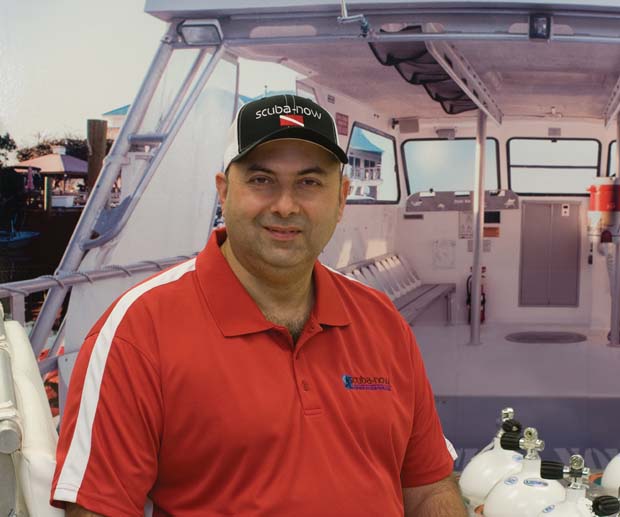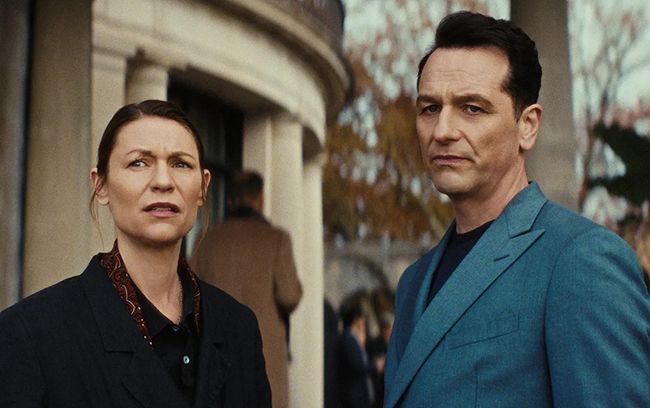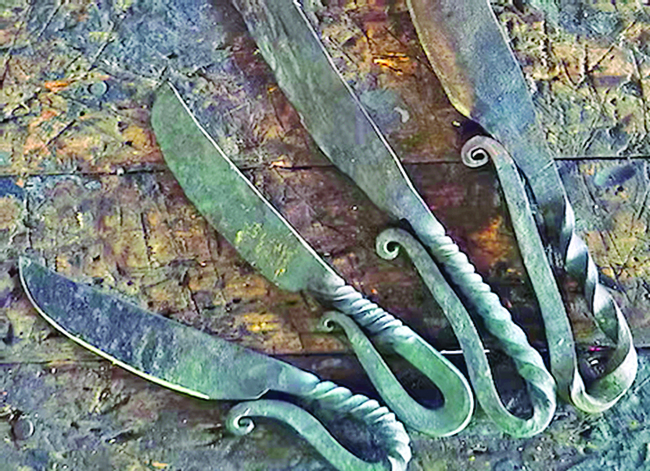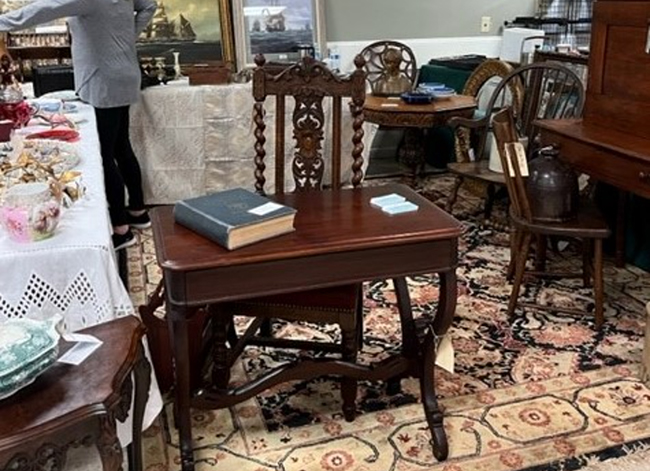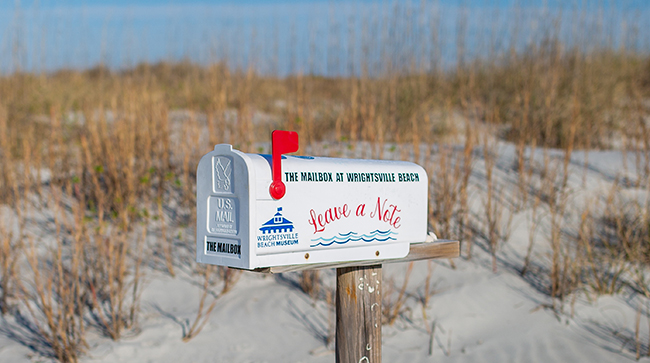The Business of the Show
09 Jun 2013
A conversation with Tony Rivenbark, the star-performer behind the curtains at Thalian Hall
By JAMIE WALKER
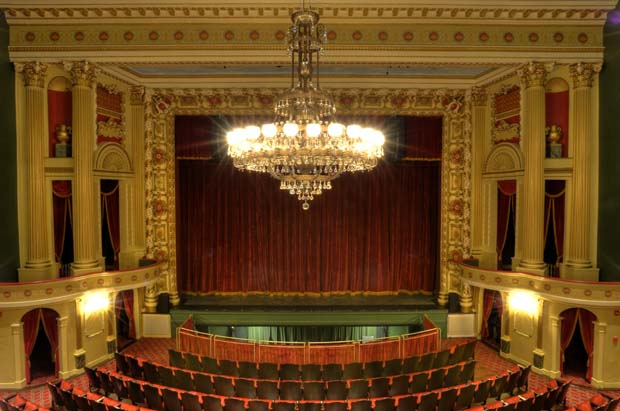
THALIAN HALL Center for the Performing Arts has been the cultural pacemaker in Wilmington NC since it opened in 1858. It's presence dominates much more than the downtown block it occupies. Throughout its 155 year history, the spirit that it represents has continuously proved, with each dramatic dip in Wilmington's political and economic heart-rate, that the "show must go on".
Not even the fall of Wilmington to Union troops in 1865 could keep Thalian's doors closed. In less than two weeks following Union occupation, actors danced across Thalian Hall's main stage, the theatre filled with eager patrons.
Early 20th century threats by commissioners and various law-makers to demolish the theatre only brought more community support. Thalian Hall has made it through fires and has undergone dramatic face lifts. At each turn the community has rallied to sustain the historical icon. It's the cultural importance of theatre, a collective passion for "the show", says Thalian Hall director Tony Rivenbark, that continues to generate the business responsible for the existence of the quality of theatre that Wilmington residents have come to expect from Thalian Hall.
"People come to the theatre or to a concert, they walk in, and they see only the work that the performers have put into that two hour performance. But, so much has gone into upholding the quality and artistic integrity of that show. We are providing support months and even years ahead, negotiating contracts, promoting the performance, arranging volunteers," Rivenbark said.
When patrons step into the 150 year old grand lobby filled with the buzz of fellow patrons and concession volunteers, he said, there's a sense of security and familiarity. And while the structure itself is a marvel, considered by Rivenbark to be the "jewel in Wilmington's crown," it's the precise planning and meticulous organization that keeps the box office busy, selling some 80,000 tickets each year to over 500 shows and events.
"We ensure that people know what to expect. Whether it's theatre, a concert, or a special event, it's the same process every time."
When Rivenbark began managing Thalian Hall operations in 1979, the ship wasn't nearly as tight. "It was basically a different show every night," Rivenbark said. Every production was run by individual production companies, often leaving patrons disillusioned.
Under Rivenbark's direction, Thalian Hall pulled in the reigns. The board of trustees created a larger staff, implemented a volunteer program, and designed operations to accommodate and direct each production, actor, musician and patron in a uniform fashion.
"People are very proud of the building. But it's the unique operation behind the performances that give them the experience they keep showing up for," Rivenbark said.
In his tenure as director, Rivenbark has experienced many shifts in population and political climate. He continues to focus, he said, on catering to all segments of an increasingly diverse community. "We don't try to create a series of programs that speak to specific market segments, but rather focus on a wide range of programs that will appeal to many people. Indefinitely there will always be cross-over," Rivenbark said.
Thalian Hall houses performers from all over the world as well as smaller productions born of local theatre companies, acting troupes, dance companies, and local bands.
"It's a right-of-passage in this community to attend a performance here or to perform," Rivenbark said. "It's such a part of life in the community. We like to call it Wilmington's living room."
Once people get there, Rivenbark said, they almost always keep coming back. But, it hasn't always been that way. In a recent address to members, Rivenbark wrote: I remember what Thalian Hall looked like in the 1960’s. It was shabby, poorly equipped, unsafe, uncomfortable, and for the most part, completely underutilized. The walls were an unappealing grey/green and the proscenium was painted pink and white with touches of faded gold paint. There had been no real maintenance or improvement in over a quarter of a century. The maroon carpet was worn and ragged, the seats were 40 years old and had come out of a demolished New York movie theatre. There were less than 20 performances a year attracting an audience of a couple of thousand people annually. Most people in Wilmington had never been inside the building. And outside of Wilmington, hardly anyone knew of its existence. And as far as the City government was concerned, it was an albatross around the City’s neck. And the reason for this state of affairs is that no one was invested in the day to day management of the facility. It was all about show business but nothing about the business of show.
Rivenbark, a trained actor starring in over 150 productions since the mid 60s, performed his theatrical debut on Thalian Hall's main stage in 1966, in the midst of such a state of affairs. Thalian Hall had been the facilities management company for a short three years and funds were an issue. The next fifteen years would bring financial and organizational challenges, fires and eventually complete renewal. Rivenbark arrived in 1979 to slowly turn the theatre into what it was meant to be. Today, Thalian Hall's attendance and the number of events it hosts is unprecedented in North Carolina.
While Thalian Hall is responsible for the production of at least one show per year, namely the Pied Piper Children's theatre founded by Doug Swink in 1970, it is otherwise strictly responsible for the management of the facilities.
A theatre historian, Rivenbark lectures across the country at various schools and events. He also attends conferences from here to the California coast, always actively pursuing the business of the show. "Our focus is always on the future," he said. "I often hear people say that performers are 'coming' to Thalian Hall. But they don't just show up here. We actively pursue them."
Renowned actor Hal Holbrooke, known for his role as Lincoln in the 1976 television series, and his one-man show as Mark Twain (performed since 1954), was invited by Rivenbark to come to Wilmington last year after meeting at the League of Historic American Theatres conference in San Diego. Holbrooke, a huge fan of historic American theatres graciously accepted.
"Mark Twain never made it to Wilmington NC," Rivenbark said. "Now, we finally get to bring him here." ■


